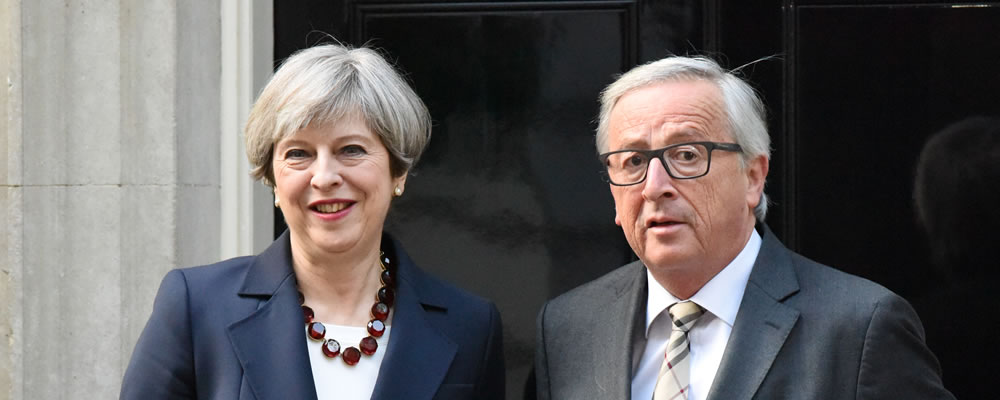Euro to Pound Exchange Rate Recovers from Monday Dip Despite Eurozone Political Uncertainties
Despite news that German Chancellor Angela Merkel would not stay on as CDU leader and would also step down as Chancellor at the end of her current term, the Euro to Pound Sterling (EUR/GBP) exchange rate edged higher this morning.
Last week saw EUR/GBP climb almost a penny, from the level of 0.88 to around 0.89. On Monday, EUR/GBP saw a modest dip due to Eurozone political news, but the pair recovered on Tuesday.
At the time of writing, EUR/GBP trends near the level of 0.8905. The Euro (EUR) had an easier time holding its ground against the Pound (GBP) amid Brexit jitters, despite the morning’s Eurozone data coming in largely below expectations.
Market uncertainty about how the Brexit process will unfold remains a significant cap on Pound strength. This is preventing the British currency from benefitting from Euro weakness.
Euro (EUR) Exchange Rates Recover Slightly Despite Disappointing Eurozone Stats
Yesterday saw investors sell the Euro amid news that German Chancellor Angela Merkel’s era was gradually coming to an end.
Merkel announced she would not stand again for leader of her CDU Party. She also announced her intention to step down as German Chancellor once her current term ends in 2021.
As Merkel has been a major point of steadiness and consistency for financial markets, this made investors anxious.
However, as Merkel is still expected to see the rest of her term through the Euro’s weakness was limited.
Tuesday’s disappointing Eurozone data had limited impact on the Euro too, despite the data indicating that the bloc’s growth has slowed down.
The Eurozone’s first Q3 Gross Domestic Product (GDP) projection came in lower than expected, with just 0.2% quarter-on-quarter and 1.7% year-on-year.
According to Bert Colijn from ING Bank:
‘Growth of 0.4% in the second quarter may have felt like a disappointment at the time, but could well have been a last hurrah of the growth cycle. Eurozone GDP growth in 3Q came in at just 0.2% and while one-off factors have influenced the number, it does not seem that growth will return to previous rates anytime soon.’
On top of this, the Eurozone’s latest business and consumer confidence stats generally fell short of forecasts too, overall leaving investors with a gloomier outlook for the Eurozone economy.
Pound (GBP) Fails to Benefit from Rival Weakness as Brexit Fears Dominate
Monday saw the UK Treasury hold its 2018 Autumn Budget Statement, but the UK Chancellor’s relatively optimistic stance on government borrowing and fiscal policy plans had little impact on the Pound.
Instead, investors remained anxious about the reality of the Brexit process.
With October drawing to an end and UK-EU Brexit negotiations still without a firm agreement on the issue of Ireland’s border, markets are concerned that negotiations could collapse without an agreement.
If the UK and EU are plunged into a ‘no-deal Brexit’ this would be perceived as a worst-case scenario for many businesses and politicians. The possibility of such a Brexit is leaving the Pound unappealing regardless of other developments.
Euro to Pound (EUR/GBP) Exchange Rate Could Weaken Again if Eurozone Inflation Disappoints
With the Eurozone’s growth outlook slower than expected and many global risks like US trade protectionism impacting the bloc, the European Central Bank (ECB) has no reason to take a hawkish stance on Eurozone monetary policy any time soon.
The only thing that could make the ECB more hawkish would be surprisingly strong Eurozone inflation data, leaving investors anticipating Wednesday’s Eurozone Consumer Price Index (CPI) report.
Eurozone inflation is forecast to have risen from 2.1% to 2.2% year-on-year in October, with the core figure expected to have edged higher from 0.9% to 1%.
If the inflation rate falls short or meets expectations, the Euro’s current weak streak could continue. This may make it easier for the Pound to recover and push EUR/GBP lower, especially if there are any Brexit developments.
Other notable stats including German retail sales and French inflation could also influence the Euro to Pound (EUR/GBP) exchange rate’s strength tomorrow.



